By Manoj Kr. Bhusal
COVID-19 offers mankind a blank page for a new beginning. The question, however, is are we prepared for a fresh start?
There is one thing certain about COVID-19, that at some point, it will end. We don’t know exactly when, but this will pass, and the dust will eventually settle. Sadly, some of us won’t be around to witness it, but many of us will, and our job will be to deal with the new reality and write a new chapter of human history.
Undoubtedly, COVID-19 will shape our economic and political future, and leave a deep cultural and psychological impact. We will live with the memories of this crisis for a long time—trying to make sense of it, trying to learn from it, and probably trying to forget it. This crisis will influence our thoughts, our expression, our art, and our literature. Movies will be made, books will be written, songs will be sung, all of which will remind us of COVID-19, a horrible pandemic that shook humanity to its core.
We will have our own personal stories and anecdotes to share with the next generation—stories of tragedies and victories; stories of hardships and sacrifices. We will probably remember how we panicked and became hysterical as the pandemic struck. We will probably remember how we tried to buy ourselves a sense of safety by hoarding our storages with toilet paper rolls and by fighting for the last packet of pasta at a grocery store lobby.
Many of us will remember being confined within our four walls, pretending to be working or studying from home, eating noodles, washing hands obsessively, and binge-watching boring soap operas, while the sun shone and birds roamed around freely in the sky.
But this crisis will leave us more than just memories. It will drag us into an uncertain realm and ultimately reshape our economic and political future.
As the crisis of COVID-19 pandemic deepens, we are faced with a multitude of questions. What will happen after this calamity is over? Who will lead us through the uncharted territory which we are about to drift into? Will we see any ray of hope amidst mass unemployment and a global economic depression?
How will COVID-19 affect our values and principles? What will happen to our liberties? Will our right to privacy and freedom of expression still continue to exist? How will our democracies survive this shock?
And then there are much broader questions. What will be the fate of globalism and multilateralism in the post-pandemic world? When everyone will have to rise from the ruins, who will help whom? Will development aid cease to exist? What will we make of globalization? Of free trade? Are they going to die a painful death?
How will this pandemic alter global power structures? Who will occupy the top seat at the power pyramid? Are we going to witness a downfall of the USA and a sudden rise of China? If so, what will be the future of capitalism? Will it survive this shock and reinvent itself, as it usually does, into a new machine? Or are we heading towards an alternative that is better and fairer for the many? If that is the case, what that alternative will be?
How will this pandemic alter the climate change discourse? Are we going to shift the way we see climate change? Will people start paying more attention to science and facts?
How will this pandemic affect our relationship with nature and its other inhabitants? Will we decide to be a little kinder to our ailing planet? Will we also become a little considerate of other inhabitants of this planet?
The questions are tough, and many. However, the only choice we have is to deal with them. We have little time, and there is no way around.
COVID-19 and Impact on Global Power Balance
One thing is certain: COVID-19 will shake up global power structures. As a result, the post-pandemic world is likely to be a messy, multipolar world.
China is already projecting its image as a winner of the COVID-19 war as viral images of US healthcare workers using trash bags as protective gear swarm the internet. The US is no longer the superpower it used to be anyway, and its poor performance in responding to the pandemic will further weaken its international footing.

How the US and China will engage in the post-pandemic world is still uncertain, though. An obvious guess, however, would be that the two countries will drift apart further to serve their own interests, the trade wars would intensify and so would the race for supremacy.
However, it doesn’t have to be that way. Crises also offer a chance for cooperation. COVID-19 does offer a rare chance for the US and China for coming together and solving global crises, not as enemies, but as partners. And we have already seen some signs of cooperation. Last month, China donated 1000 ventilators to New York City, and Harvard and Chinese scientists have started a collaboration on coronavirus research.
More extensive cooperation between China and the US would be desirable, but unlikely under the current US administration. Confrontation, not cooperation, is what Donald Trump craves. Trump administration’s diplomatic performance has been so poor that, forget enemies, the US hasn’t been able to keep up with its own allies. Just recently France and Germany accused the United States of “modern piracy” after medical shipments bound to their capitals were “confiscated” and redirected to the US.
We might see a change of guards in the White House in 2021, and that might offer a bout of fresh air in global politics. In any case, global cooperation is likely to continue, at least at scientific and academic fronts.
Obviously, the US will emerge weaker in the aftermath of the pandemic, however, a frail and declining US doesn’t mean China’s unhindered ascend to global supremacy. China has its own demons to deal with, and plenty of them. The pandemic has already damaged China’s export-based economy, and with a global recession on the horizon, prospects for China are equally grim. When the global economy sinks, China can’t prosper alone.
In addition, China has already been criticized for not sharing enough information about the novel coronavirus when it first appeared in Wuhan, and also for under-reporting cases of COVID-19. No need to mention, China already faces criticism for a myriad of other issues, including its poor human rights records, widespread censorship within its boundaries, and its oppressive attitude towards minorities and the voice of dissent.
In that sense, as some commentators have argued, China is not yet fit to lead the world.
So we are likely to witness a new international order that is not very orderly. A weak United States, a not-good-enough China, a divided EU, and emerging powers such as Russia, India, and Brazil lacking vigor and strength necessary to reach the top.
A multipolar world might not be bad in the long run, though. Global institutions, such as the United Nations, will have a greater and more meaningful role in a multipolar world, and smaller and weaker states, too, will have more influence in shaping pressing global issues.
In an ideal world, one would expect countries to come together after a crisis, but international politics doesn’t work that way. Previous epidemics and pandemics didn’t alter the conflictive nature of global politics, and COVID-19 is unlikely to change the fundamental nature of it, which is the pursuit of power.
Impact on National Politics, Democracy, and Personal Liberties
COVID-19 is already having an impact on the internal politics of several countries. The pandemic will be politically costly for some politicians, especially to those who are perceived to have managed the crisis poorly. The ones successful in “flattening the curve” or handling the crisis relatively well, however, will make a political career out of it.
Unfortunately, we might also see a rise of populism, and the growth of repressive regimes and strongmen rule in several countries. In many countries, democracy and pluralism will be at stake. Dictators-in-the-making will seize this opportunity to concentrate power and materialize their authoritarian fetishes.
In some countries, authoritarian practices have already started. Showing the threat of the coronavirus, Viktor Orban in Hungary suspended the national parliament and declared a state of emergency for an indefinite period. Mr. Orban, who has now been called EU’s first dictator, will rule by decree indefinitely. Elections are suspended in the country and Draconian laws have been introduced to suppress the freedom of speech.
This pandemic will affect democratic processes globally. While established democracies might face a home-grown pressure to turn inward, closed and repressive regimes, such as Iran, are likely to face internal pressure for openness, transparency, and democratic reform. If we witness a new “Arab Spring” or an “Orange Revolution” in 2021, that wouldn’t be surprising.
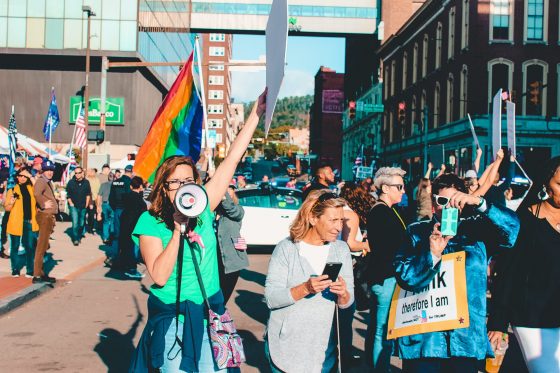
Surveillance, Individual Privacy, and New Definition of National Security
The use of technology has been widespread throughout the pandemic. For instance, China used smart-phone apps to follow the spread of the virus, Russia adopted a facial recognition system to track down people breaking restrictions, and Tunisia deployed police robots to approach and interrogate people walking on deserted streets. In India, drones have been used not only for monitoring lockdown but also for measuring people’s body temperatures. And South Korea imposed wristbands for curbing quarantine defiance.
Some of these or similar practices will continue to exist in the post-pandemic world. Some governments might force their citizens to use wearables, or to reveal their locations in the name of “national security” or “common good”. Unfortunately, such measures will be used especially for spying on political opponents and suppressing the voice of dissent. In some countries, people are already required to choose between safety and personal liberties, and that’s particularly alarming.
Referring to such danger, Yuval Noah Harari recently wrote: As a thought experiment, consider a hypothetical government that demands that every citizen wears a biometric bracelet that monitors body temperature and heart-rate 24 hours a day. The resulting data is hoarded and analyzed by government algorithms. The algorithms will know that you are sick even before you know it, and they will also know where you have been, and who you have met.
In addition, COVID-19 will change the concept of ‘security’ itself, and, in the future, governments around the world will go way beyond religious fundamentalism and terrorism when they roll out their national security measures. In the post-pandemic world, a virus or a disease could easily be a national security threat. This will fundamentally change the modus operandi of international intelligence, too. If you want to keep your country safe, you got to look for uranium enrichment plants in a foreign land, but also keep an eye on a rapidly spreading disease somewhere far away.
COVID-19 has shown how dangerous a massively spreading virus could be in a globalized world. What happens if countries resort to developing a biological weapon of this sort? Biological weapons or bioterrorism are nothing new, but their use might intensify in the post-COVID-19 world. There will be nuclear enrichment plants, but probably virus “enrichment” facilities, too.
What about Globalisation, Free-trade, and Development Aid?
The economic consequences of COVID-19 will be massive. The UN has already warned of global instability and conflict, and according to Oxfam, the Nairobi-based charity, the pandemic could push as many as half a billion people into poverty. The World Food Programme (WFP) has warned of “biblical” famines, and the UN’s Trade and Development Agency, UNCTAD, estimates the pandemic could cost the global economy more than $1 trillion. According to the IMF, the world faces the worst recession since the Great Depression.
These are just estimations, and no one really knows the extent of the imminent post-pandemic economic crisis on our way. These grim figures will turn grimmer as the pandemic proliferates, and for many economies, the luxury of a speedy recovery won’t exist.
COVID-19 will be a big blow to globalization, the capitalist globalization, as we know and experience. However, we are not going to witness the end of it. The speed and the intensity of globalization will certainly slow down for a while, but eventually, globalization will recuperate and gain strength over time. As long as capitalism is around, globalization is not going anywhere.
There have been reports of companies “in-shoring” their production houses from abroad, but they are just temporary measures taken amidst looming uncertainties, supply chain disruptions, and disappearing profits.
Capitalism and globalization will survive, but multilateralism and global cooperation are likely to face a serious setback. US President Donald Trump’s decision to cut funding for the World Health Organisation (WHO) already signals the unfortunate.
As advanced economies will be busy repairing damages at home, problems in faraway lands will receive less attention. As a result, we might see a significant decline in development aid. This will, at least temporarily, have an impact in some parts of the developing world. For some countries, however, the absence of aid will serve as a wake-up call. They could use this opportunity to bolster their internal economies and strengthen good governance, and ultimately break free from an eternal cycle of aid dependency.
Multilateralism is likely to suffer because we might see some sort of a political distancing as countries in the post-pandemic world will feel the pressure to turn inward. Some borders closed during the pandemic might never open again, and some countries, at least temporarily, will choose to cut off ties to the outside world.
The world wrecked by economic difficulties and mass unemployment will be a breeding ground for populism, xenophobia, and racism of all kinds.
But again, it doesn’t have to be that way. After all, our future might not be as bleak as I portray here. And history comes in handy when scavenging for an iota of hope.
Nationalism, protectionism, and economic depression ruled the world in the wake of World War I, however, exactly the opposite happened after World War II. In the wake of the Second World War, the world walked a path of cooperation. From the ruins of a world war, a new era of global cooperation began, and institutions such as the United Nations, the World Bank, and the IMF were created. The post-1945 world was no utopia, as the power struggle of major players dominated world politics, but there was a lot of cooperation, too.
This pandemic offers more or less the same opportunity, an opportunity for new and just cooperation on the global level.
The world craves cooperation not just because of this pandemic, but also because of the looming crisis of climate change. The climate change crisis is going to be much more serious than this pandemic, and that’s when humanity will be really helpless. There isn’t much you can do with climate change when it’s too late. You can’t certainly chase it away with a vaccine, neither keeping oneself in quarantine or flattening the curve will be of any use.
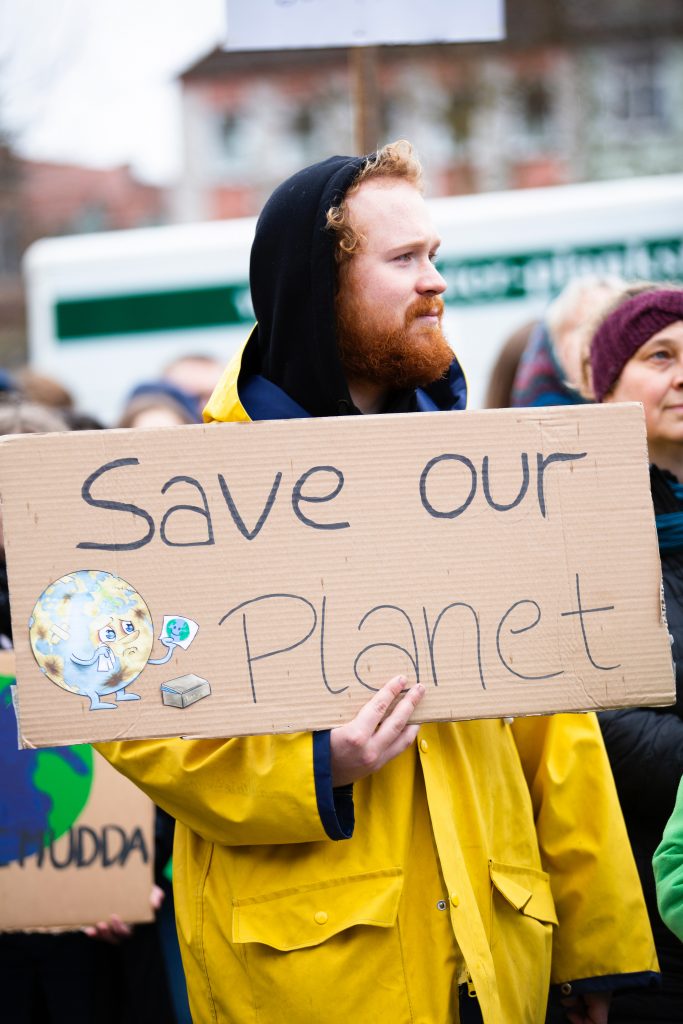
That’s why we need global cooperation and serious concerted action to tackle climate change. Shaken by the impact of this pandemic, we might finally give climate change the attention it deserves, and if that happens, that will be good for the survival of our species.
A systemic overhaul on the way?
As I mentioned at the beginning of this article, one day this pandemic will be over, and we will be left with an opportunity to start afresh. At the other end of this trauma lies the possibility of post-traumatic growth. We might be required to change our habits, we might need to question and abandon our belief systems, and we might need to make personal sacrifices for the common good, but COVID-19 offers us a rare opportunity to correct our course and head towards a better and fairer world.
As I have explained throughout this article, this pandemic is going to change the world in several ways. Our politics, our cultures, our economies, and we ourselves as a species are going to be shaped and altered by this crisis. Distance work, distance teaching/ learning, and telemedicine will be the new normal. We might also witness unprecedented growth in the digital world, and a new wave of automation in manufacturing and the service sector. This all will redefine consumer and economic behavior in a new, disruptive way. Similarly, we will have more faith in science and facts instead of conspiracy theories. Our healthcare systems will, hopefully, go through the transformation they desperately need.
If so, is the world heading towards a radical change? A fundamental reshuffle of a sort?
It probably isn’t, and that makes all the difference.
This pandemic has made us, once again, aware of the deeply unequal and the rigged world we live in. Yes, we have seen an outpouring of human compassion, of people coming together and helping each other at this time of crisis. Yes, we have seen healthcare workers toiling day and night at the front line of the pandemic, often putting their own lives in danger for saving someone else’s. But we have also seen the other side of the coin. We have seen how self-isolation and social distancing has been a privilege only a few could afford.
We have read heart-wrenching stories of migrants stranded in industrial cities, of flight attendants more worried about losing jobs than catching the virus, of the poor anxious that hunger could kill them before the coronavirus.
And these tragic stories are not unique to any specific region. They are from everywhere. From Mumbai to Manhattan to Manila. This crisis has finely documented and showcased the tragedies of the working poor, of the millennials entangled in the gig economy and living paycheck to paycheck, often in desperation, with a burgeoning student loan and endless credit card bills.
Sadly, this is the world we live in. A world where there is ample supply of arms and ammunitions, but a shortage of life-saving ventilators and personal protective equipment (PPEs) for healthcare professionals. A world where there is an abundance of cash for bailing out obsolete corporations, but not enough money to pay a decent salary to healthcare workers. This is the world we have built. A world where you are more likely to die from a disease like COVID-19 just because you happened to be black, Hispanic, or poor. A world where you are laid off or fired from work the moment your work no longer generates profit.
On the surface, it appears like these problems are caused by COVID-19, but they are not. COVID-19 is just a disease, whereas these problems are the result of a systemic failure. Beneath all this decay and desperation, there is the giant machine of corporate capitalism at work. A ruthless, dysfunctional, and exploitative system which has, once again, served a few and failed the many.
Corporate capitalism has failed us all, but our perpetual complacency with it is simply bizarre.
What are we going to do with this obsolete giant? That is going to be the most crucial and the most definite question of the post-pandemic world. Yes, we can remain complacent and let it thrive at our own expenses again, but we can also mould a radical alternative; an alternative that will be just and fair for the many.
And COVID-19 offers us that opportunity– an opportunity to start afresh, an opportunity to walk a different road, an opportunity to reject patchwork, and go for a systemic overhaul.
Will we be courageous enough to walk a different road? Of that, time will tell. But if we did, history will thank us.
(An edited version of this article has now been published as a journal article. For academic citations, please use: Bhusal, Manoj 2020. The World After COVID-19: An Opportunity For a New Beginning. International Journal of Scientific and Research Publications, Volume 10, Issue 5. DOI: http://dx.doi.org/10.29322/IJSRP.10.05.2020.p10185 )


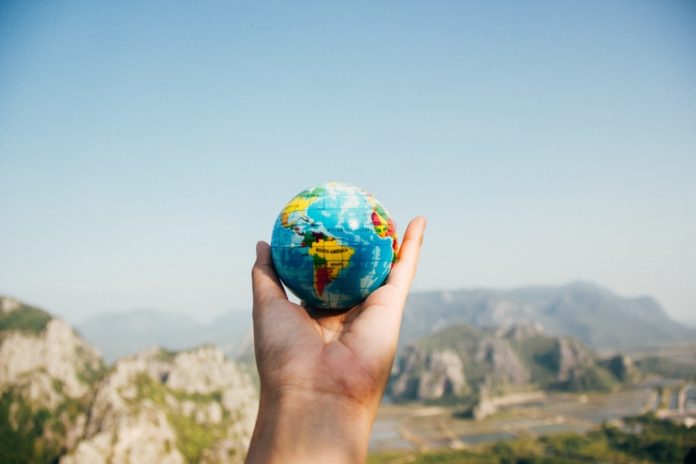

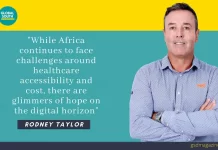

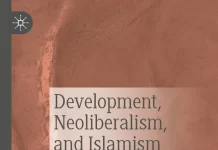




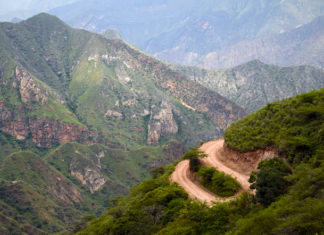
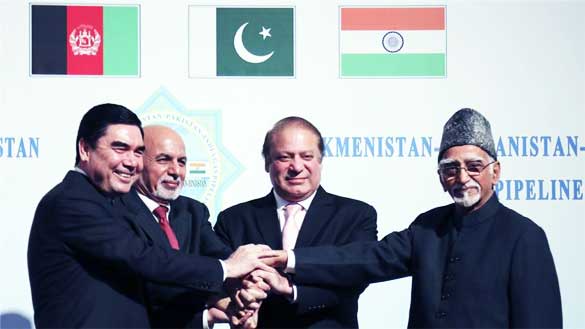
[…] See Also: The World After COVID-19 […]
“Sadly, this is the world we live in. A world where there is ample supply of arms and ammunitions, but a shortage of life-saving ventilators and personal protective equipment (PPEs) for healthcare professionals. A world where there is an abundance of cash for bailing out obsolete corporations, but not enough money to pay a decent salary to healthcare workers.”
This para hit me to the core. Thanks
This is an interesting article. Thank you for this. Let’s hope that things will turn out to be Okay. Recovery won’t be easy, but it will happen. Sooner or later.